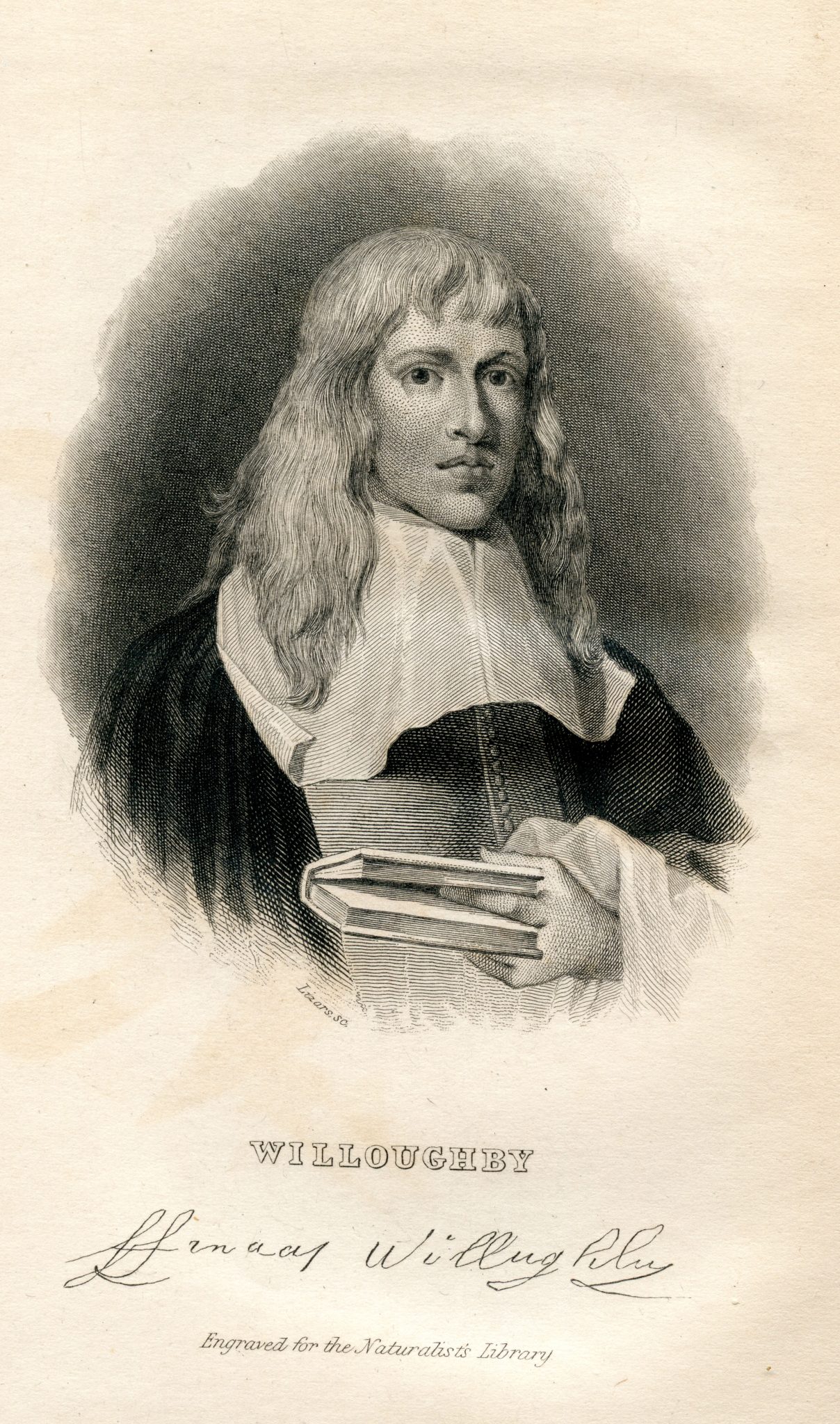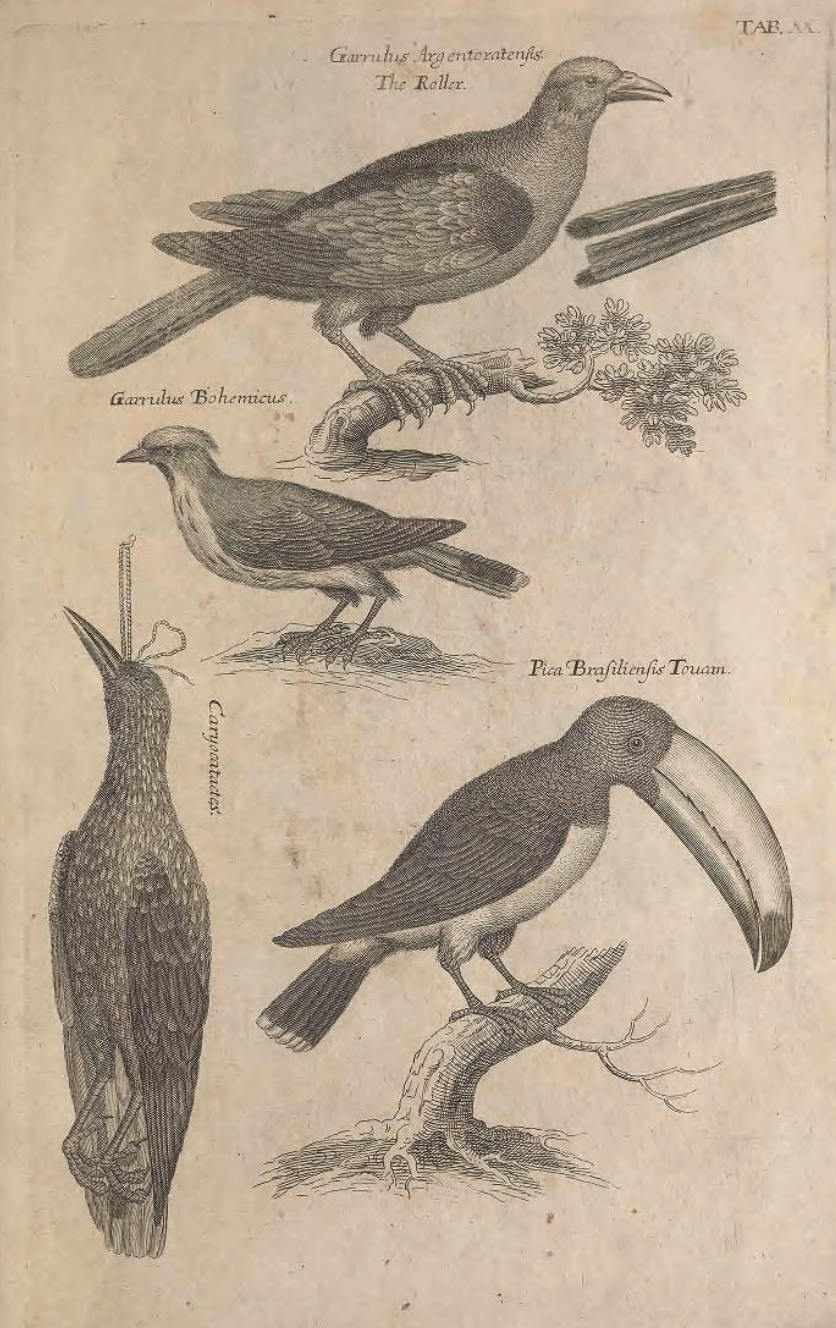 Francis Willughby (1635-1672), an English ornithologist, is far from well-known. He died at just 36, so his groundbreaking books on birds, fish and insects were all completed and subsequently published by his life-long friend and one-time undergraduate tutor, John Ray.
Francis Willughby (1635-1672), an English ornithologist, is far from well-known. He died at just 36, so his groundbreaking books on birds, fish and insects were all completed and subsequently published by his life-long friend and one-time undergraduate tutor, John Ray.
A brilliant academic and prolific writer, Ray rather eclipsed Francis Willughby. When I wrote The Wisdom of Birds, I applauded Ray’s work, and indeed, my book’s title was chosen to reflect his remarkable insights into bird biology in Ray’s own book The Wisdom of God.
To obtain a portrait of Francis Willughby for my new book, I visited the Willughby family home. While there, I made a complimentary remark about John Ray and was told, rather firmly, that it was Francis Willughby rather than Ray who was the genius. That rebuke made me realise just how much Willughby had been ignored and I wondered if he deserved some more attention. To learn more about Francis Willughby, I obtained funds from the Leverhulme Trust for what they called an ‘International Network’ grant. That generous funding allowed me to join forces with a number of science historians for what would become one of the most engaging and stimulating projects of my entire career.

Willughby’s role as an ornithologist was well known, because the first of his books completed by Ray was entitled The Ornithology of Francis Willughby, published (in Latin) in 1676 then in an extended English edition two years later. In contrast, Willughby’s work on the fishes, Historia Piscium, and insects, Historia Insectorum, were published only in Latin, and Willughby is not even mentioned on the title page of the insect book.
It is ironic that John Ray laboured so hard and so long to bring his friend’s works to public attention as all of those volumes seemed to highlight Ray’s talents more than Willughby’s. In addition, most of Willughby’s papers were lost as they were passed back and forth between different colleagues of Ray’s. Without those papers, we knew that our investigation of Willughby’s life was going to be a challenge.
The assembled team—Isabelle Charmantier, David Cram, Meghan Doherty, Mark Greengrass, Daisy Hildyard, Dorothy Johnston, Sachiko Kusukawa, Brian Ogilivie, William Poole, Chris Preston, Anna Marie Roos, Richard Serjeantson and Paul Smith—was absolutely remarkable in discovering a vast amount of previously unknown information. The reason we were able to do so much was mainly because we had access to the “Willughby Archive” (referred to as the Middleton Collection, held at the University of Nottinghan) that had not previously been examined in detail. This archive holds Willughby’s commonplace book, some letters, his herbarium, and collections of wildlife paintings that he accumulated—a true treasure trove.
As well as being a pioneer in the scientific revolution, Willughby—we discovered—was an accomplished mathematician, with a fascination for games of chance (such as dice and cards). He was also intrigued by language and at Cambridge as an undergraduate he experimented in “chymistry”—a blend of chemistry and alchemy—much as Isaac Newton had done.
The end products of our research project are two books: an edited academic volume Virtuoso by Nature: The scientific worlds of Francis Willughby FRS (1635–1672) published in 2016, and a forthcoming popular book The Wonderful Mr Willughby: The first true ornithologist that will be published in 2018.
Sources
-
Birkhead TR (2008) The wisdom of birds: an illustrated history of ornithology. London: Bloomsbury.
-
Birkhead TR (2016) Virtuoso by Nature: The Scientific Worlds of Francis Willughby FRS (1635-1672). Leiden: Brill
-
Birkhead TR (2018) The Wonderful Mr Willughby: The first true ornithologist. London: Bloomsbury.
-
Ray J (1676) Ornithologiae libri tres: in quibus aves omnes hactenus cognitae in methodum naturis suis convenientem redactae accuratè descripbuntur, descriptiones iconibus. London: John Martyn.
-
Ray J (1678) The Ornithology of Francis Willughby. London: John Martyn.
- Ray J (1691) The Wisdom of God Manifested in the Works of Creation. London: S. Smith.
-
Ray J (1710) Historia Insectorum. London: A. & J. Churchill.
-
Willughby F (1686). Historia Piscium. Oxford: Theatro Sheldoniano.
COMMENTS